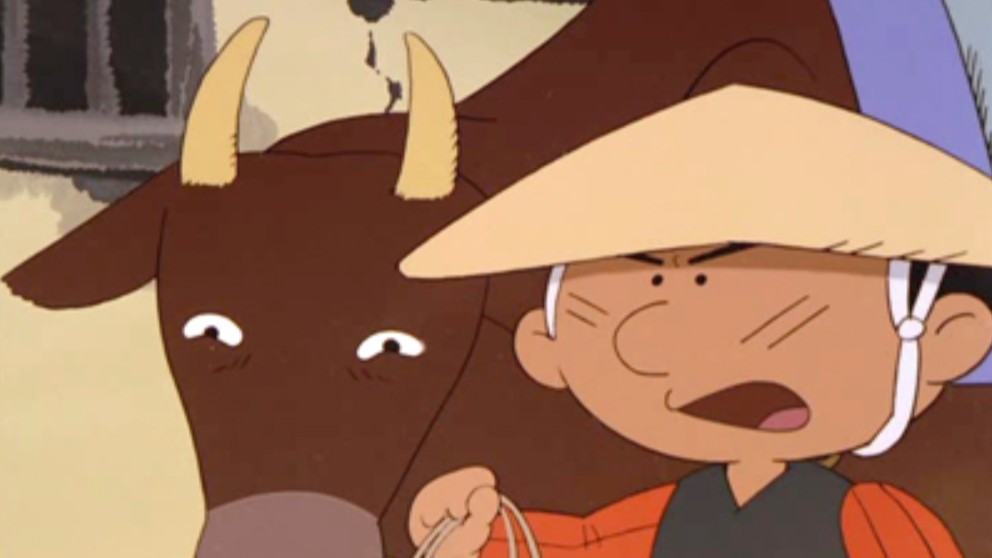昔、
日本では1
月7
日、3
月3
日、5
月5
日、7
月7
日、9
月9
日を「
節句」と
言って、お
祝いいをしました。
In the past, in Japan, January 7th, March 3rd, May 5th, July 7th, and September 9th were called sekku, and people held celebratory events on these days.
。
In a certain village, on the day before the festival, everyone cut the grass along the roadside and repaired the bridge.
そして、
次の
日にみんなでお
祝いいをしました。
After that, the next day, we all held a celebration ceremony together.
この
村に、ヘソ
曲がりな
若者がいました。
There was a stubborn young man in this village.
。
He doesnt participate in village events or festivals at all.
。
On May 5th of a certain year, on Cow Festival Day, the villagers let the cows rest and hold a celebration.
。
However, the young man took the cow to his own field and made the cow plow the field.
。
Even when the villagers warned him, the young man kept saying, Ill do what I want to do.
。
At that moment, water suddenly overflowed from the rice field, and the young man and the ox sank into the field.
の
人たちはびっくりしましたが、
若者の
父は「これで
分かるだろう」と
助けませんでした。
The villagers were all very surprised, but the young man’s father said, “This way, you’ll surely understand,” and did not help him.
。
The cow got out of the muddy water on its own, and the young man grabbed onto the cows tail.
。
After this incident, the young mans rice field could no longer be used.
。
He started working in other peoples rice fields to make a living.
。
Since then, he stopped being stubborn, started participating in village events, and became close with everyone.

